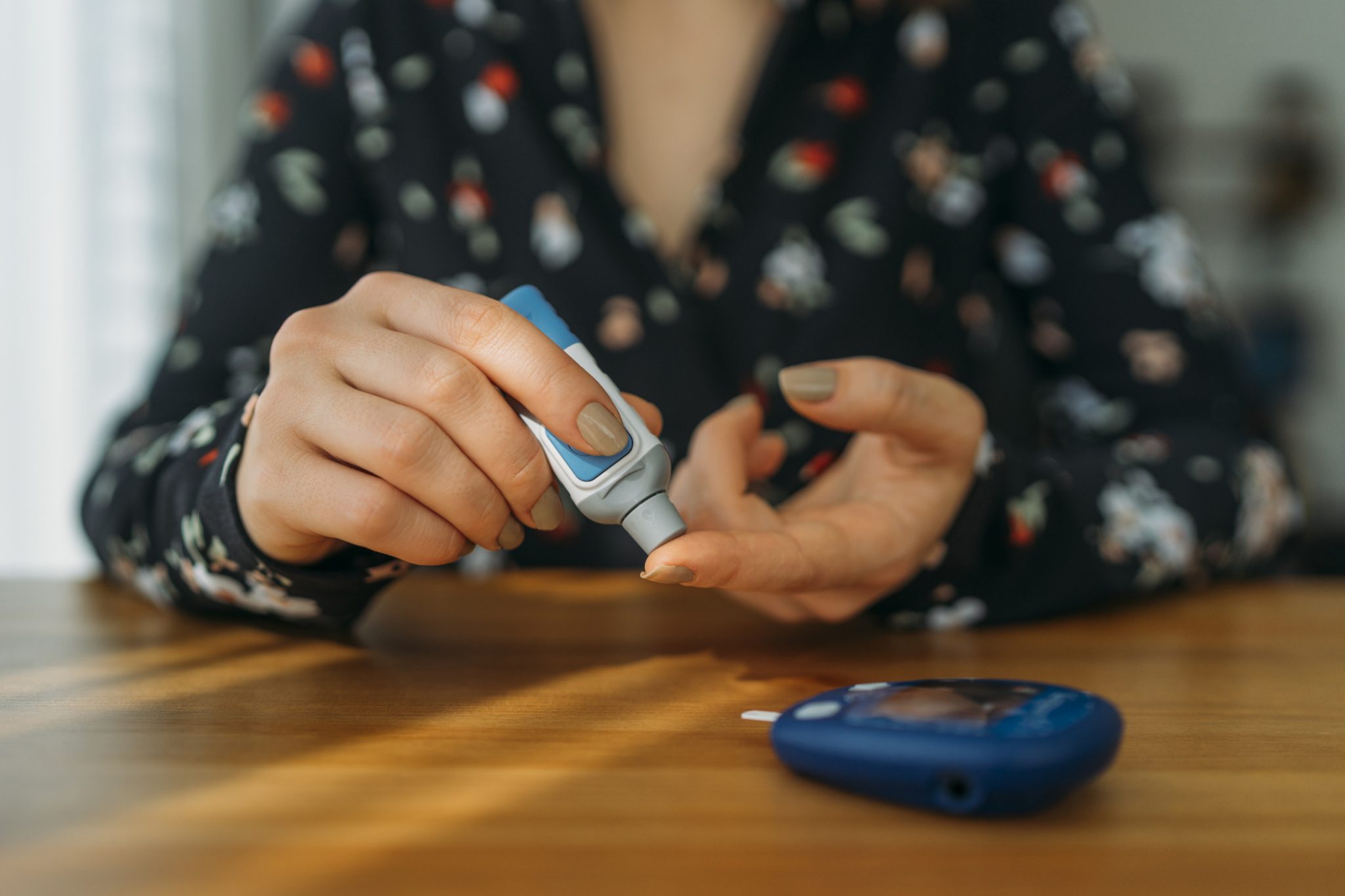Can You Get Diabetes from Eating Too Much Sugar?

December 14, 2021
How does a person get diabetes? One common belief is that you can develop diabetes from eating too much sugar.
“It’s not as simple as eating too much sugar can cause diabetes,” says Ayushi Dixit, M.D., an endocrinologist at Pascack Valley Medical Center. Since glucose levels are elevated in diabetes, it is assumed that eating sugary foods causes the disease. However, type 2 diabetes, the most common form, is a combination of insulin resistance and pancreatic failure.
What to Know About Glucose and Diabetes
“Type 2 diabetes is a disease in which your body has difficulty responding to its own insulin production [insulin resistance]. To try to overcome insulin resistance, your pancreas will produce more insulin, and when it can no longer keep up, your blood glucose rises,” says Dr. Dixit.
Glucose is an energy source that our body needs and that we get through the food we eat. In diabetics, elevated glucose levels can affect other organs. The most common complications of uncontrolled diabetes include heart disease, nerve damage or peripheral neuropathy, diabetic retinopathy, which can lead to blindness, and chronic kidney disease, which can lead to kidney failure or dialysis.
“For people who don’t have diabetes, glucose levels usually remain stable,” says Dr. Dixit. A person who does not have diabetes should not experience a sugar spike after having soda or a piece of cake. “This is because your pancreas is working normally and is able to effectively manage it.”
The majority of diabetes medications act by trying to keep blood glucose levels within specific ranges. In type 1 diabetes—where the pancreas does not make insulin at all—since the defect is in insulin production, we treat patients with insulin. Patients with type 2 diabetes—which occurs because of insulin resistance—have several options for therapy since most of them are still producing insulin. They are often started on oral medications before being placed on insulin.
How to Avoid Developing Type 2 Diabetes
“To avoid type 2 diabetes, the best thing you can do is keep your weight within a normal range and eat a clean balanced diet,” says Dr. Dixit. What’s normal depends on your height and age. It’s important to keep your body mass index within a healthy range, which is between 18.5 and 24.9, according to the National Heart, Lung and Blood Institute.
As far as nutrition, there is no specific diet solution, but it’s important to maintain a healthy weight and watch your carbohydrate intake. “If you are concerned about your risk for diabetes and are overweight, changing your diet can help you lose weight and lower your risk for developing diabetes,” Dr. Dixit says, offering these tips for lowering your risk of type 2 diabetes:
- Lose weight if you are overweight or obese. Just a 5 or 10 percent weight loss can make a big difference in your diabetes risk and overall health.
- Avoid foods that are high in sugar and refined carbohydrates. Instead, prioritize non-starchy fruits and vegetables, whole grains, lean proteins and lots of water.
- Exercise regularly. Work with your doctor to figure out what might work best for you.
- Don’t smoke. According to the Food and Drug Administration, smokers are 30–40 percent more likely to develop type 2 diabetes than nonsmokers.
- Keep your food portions in check. In today’s world, food portion sizes are bigger than ever, making it easy to overeat. Pay attention to how much food you consume at each meal. Invest in a food scale, measuring cups and spoons to help you figure out appropriate food portions
Next Steps & Resources:
- Meet our source: Ayushi Dixit, M.D.
- To make an appointment with Dr. Dixit or a doctor near you, call 800-822-8905 or visit our website.
- Learn how we are committed to helping people with diabetes manage their disease so they can enjoy an improved quality of life and avoid the debilitating complications caused by diabetes
The material provided through HealthU is intended to be used as general information only and should not replace the advice of your physician. Always consult your physician for individual care.
Find a doctor near me
Newly Diagnosed with Diabetes? Top Five Ways to Manage It

About 1.5 million adults in the United States are newly diagnosed with the disease each year, adding to the estimated 30 million Americans living with the condition, according to the Centers for Disease Control and Prevention.
Worst Foods to Eat for Your Health

Limit unhealthy foods for better health. Dr. Sayanlar shares tips on reducing added sugar, salt, refined carbs, and processed meats. Learn more & schedule an appointment.
Find a doctor near me

Foot Care for Diabetics
Did you know that proper foot care can help prevent complications from diabetes down the road?

5 Questions to Ask Your Physician at an Annual Physical Exam
Getting an annual physical exam is an important step in staying healthy. It’s an opportunity to touch base with your primary care physician while you are healthy so you can stay that way.

Diabetes and COVID-19: Staying Healthy
People with diabetes are not more likely to get COVID-19 than the general population, according to the American Diabetes Association.

Back on Track With Diabetes
Manage diabetes effectively. Pascack Valley Medical Center offers expert diabetes care and support. Learn from Stacey's experience and improve your health.
